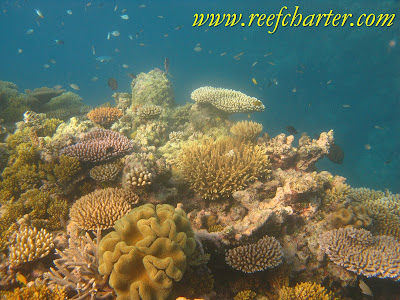Understanding the reef and the ecosystem that it is part of brings a much better fulfillment to each dive or snorkel that you partake in. Every reef is slightly different and the marine life and coral formations can vary a great deal with reefs just a few miles apart. Going with an operator that knows the reef and the ecosystem is a definite pre-requisite to getting the most out of every time you hit the water.
A basic understanding the life-cycle of a coral reef helps you understand what you are seeing take place in front of your eyes. Coral form in different ways in different parts of the world and each location may have it’s peculiarities due to tides, currents, temperatures and a myriad of other factors. So it is best to dive with a local expert and someone who cares about the reef that you are diving. There are plenty of predators and destructive forces that prey upon the corals that make up the beautiful underwater landscape. This is a natural part of the life-cycle of a reef and is why you will see parts that appear dead or like rubble. The healthier the reef, the higher the percentage of coverage of coral, however there always needs to be some areas that are not covered so new corals can take hold and grow as part of the reef. Much like a tree needs a break in the forest to get sunlight to grow, often a larger tree must die and fall for this to happen and the life-cycle to continue.
The fish, turtles, sharks, starfish, rays and other marine life that surround reefs are also part of the balanced ecosystem. Local knowledge and educated staff can tell you the role each of them play. Are they are predator? Do they eat algae? Do they eat the coral? Do they filter water? Each of them have their special place in the ecosystem. This balance needs to be maintained to keep the worlds’ reefs healthy and vibrant for the next generation. The healthier the reef the more resistant it is to any disease or adverse impact it may suffer. Feeding fish while it may make your dive or snorkel more exciting as after periods of time marine life will flock to the area, it upset the balance that the reef has taken generations to reach.
So on your next trip study a bit before you go and learn about the area and ecosystem you are about to visit. You may even learn something the local expert has yet to discover. Then choose the tour carefully to make sure you get the most you can out of your experience.
